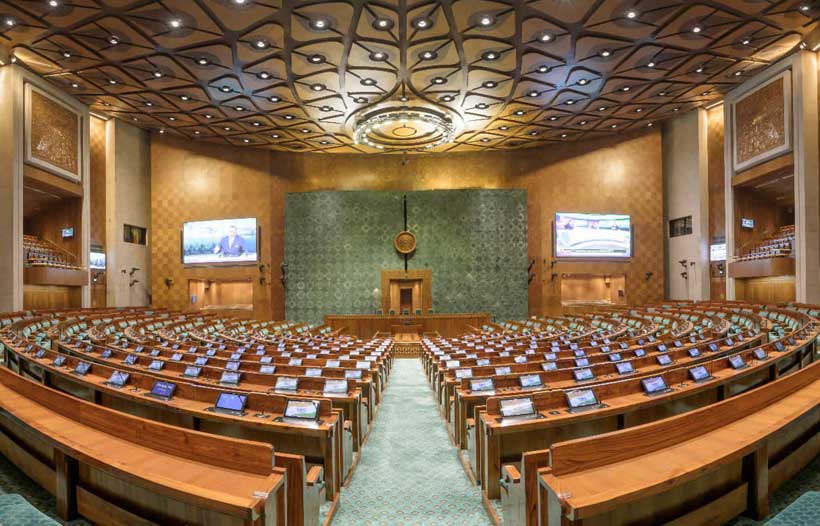Modi’s previous terms have been characterized by a hardline approach towards Pakistan, underpinned by significant military actions like the 2016 surgical strikes and the 2019 Balakot airstrikes. These actions, framed within a zero-tolerance policy towards terrorism, have resonated strongly with the BJP’s base, reinforcing a narrative of national strength and security. This stance was a cornerstone of the BJP’s electoral strategy, leveraging nationalistic sentiments to galvanize voter support.
However, the political landscape has shifted. The BJP’s diminished majority in the latest election cycle suggests a changing voter base more concerned with domestic issues such as unemployment and inflation than external threats. This shift in voter priorities may compel Modi and the BJP to moderate their aggressive posture towards Pakistan to maintain political stability and accommodate the diverse views within a coalition government.
This potential moderation is not merely a reflection of electoral expediency. India’s strategic focus has increasingly turned towards China, which is seen as the most significant foreign policy challenge. The border tensions with China necessitate a more nuanced regional strategy, potentially requiring a more stable relationship with Pakistan to avoid being stretched too thin on multiple fronts. This strategic realignment could lead to a de-escalation of hostilities and even a tentative engagement with Pakistan, aimed at reducing regional instability.
Rezaul H. Laskar, foreign affairs editor at the Hindustan Times, posits that Modi’s foreign policy is likely to maintain continuity, with no radical shifts expected. However, the internal dynamics of a coalition government could influence the extent of this continuity. The necessity to appease coalition partners with varying views on Pakistan might lead to a softened stance, especially if key figures like Home Minister Amit Shah, known for his hardline policies, face opposition within the coalition.
Moreover, the BJP’s internal politics play a crucial role. Figures like Amit Shah may have significant influence over decision-making, but their political ambitions and the need to secure their future careers might create friction within the coalition. This internal contestation could limit the BJP’s ability to maintain a uniformly aggressive stance on Pakistan.
Abdul Basit, a former high commissioner to India, suggests that Modi might respond positively to Pakistan’s repeated calls for restoring full diplomatic relations. The long-pending 19th SAARC summit could be a platform for such engagement. A re-engagement with Pakistan, without conceding on key issues like Kashmir, could be portrayed as a diplomatic victory for Modi, bolstering his image as a pragmatic leader capable of balancing national security with regional diplomacy.
However, substantial challenges remain. Long-standing issues such as cross-border terrorism and the Kashmir dispute are deeply entrenched and unlikely to be resolved quickly. The internal political dynamics of Pakistan, its own economic and political instability, and its military’s role in shaping foreign policy add layers of complexity to any potential rapprochement.
Domestically, Modi’s diminished majority means he must navigate communal issues with a more inclusive approach. The electoral outcomes in regions like Kashmir, where dissatisfaction with the central government’s policies is evident, further complicate the BJP’s hardline stance. Engineer Sheikh Abdul Rashid’s victory in Baramulla, despite being detained, signals a significant local pushback against perceived repressive policies, highlighting the need for a more nuanced and sensitive approach.
In the grand scheme, the BJP’s historical use of anti-Pakistan rhetoric as a tool for domestic political gains may no longer yield the same results. Voter fatigue with such narratives and a growing focus on pressing domestic issues suggest a declining effectiveness of this strategy. The opposition’s avoidance of entanglement in the BJP’s anti-Pakistan and anti-Muslim narratives, instead focusing on concrete issues, reflects a shift in the political discourse.
In conclusion, while the BJP’s foundational foreign policy stance towards Pakistan has been one of assertiveness and zero tolerance, internal and external dynamics may necessitate a rethink. The coalition government’s internal politics, the strategic necessity to focus on China, and a changing voter base more concerned with domestic issues could collectively push the BJP to adopt a more moderated approach. This potential shift, however, would need to balance maintaining national security with pragmatic diplomacy while navigating deeply entrenched historical issues and regional complexities.
The challenge for Modi and the BJP will be to manage this delicate balancing act, ensuring that any diplomatic overtures do not undermine their strong nationalist image or alienate their core supporters. A more moderated approach towards Pakistan could pave the way for dialogue and potentially normalization efforts, but it would require significant diplomatic finesse and political will. As India’s regional and global standing continues to evolve, a pragmatic reassessment of its Pakistan policy, informed by both domestic political realities and broader strategic imperatives, may be both necessary and inevitable. The future of India-Pakistan relations, therefore, hangs in a delicate balance, with Parliament and internal political dynamics playing a crucial role in shaping the trajectory.
